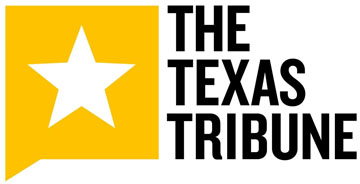The factors behind declining higher education enrollment, who’s being left out and what can be done about it will be discussed at The Great Student Resignation, set for noon Thursday in the Zant Community Room at Odessa College.
The Texas Tribune event will be on the second floor of the Saulsbury Campus Center. The panel will include Odessa College President Gregory Williams; University of Texas Permian Basin President Sandra Woodley and Ector County ISD Superintendent Scott Muri.
The conversation, which will be live and virtual, will be moderated by Texas Tribune CEO and co-founder Evan Smith.
Smith said Wednesday that the discussion will cover, in part, what’s become of the college-going culture.
“We’ve picked a place where we have terrific leaders, educators and two institutions that are actually holding their own. But we’re having a conversation that is really not just about this region, or the schools, but is more about the institution of higher ed and about the state of Texas,” Smith said.
“It’s really about the college-going culture. If I were defining in one sentence what this event’s going to be about it is about what has become of the college-going culture here in year three of the pandemic,” he added.
Texas has a couple of challenges, he said.
“The first is that we don’t graduate a lot of kids from college. If you look at the eighth-grade cohort numbers that the higher ed coordinating board puts out, you track kids beginning in the eighth grade in Texas public schools; you follow them through high school and then six years out. It’s only about one in five that achieve some kind of completion whether that’s a four-year degree, a community college associate degree or even a workforce certificate. It’s only about one in five, so that’s already a challenge we had before the pandemic,” Smith said.
“But during the pandemic we saw that there were a couple of enormous icebergs in the path for kids who were thinking about going to school; the public health emergency being the largest of those. The corresponding economic downturn being a secondary one of those.
“The fact is that even the kids who managed to remain economically able to attend college and were able to stay healthy and their family members stay healthy … found themselves for the better part of the last couple years in at least hybrid classes, if not entirely online …,” he added.
That experience was vastly different from most students before that. There were a lot of students who found they didn’t enjoy the virtual environment, weren’t getting anything out of it and decided to “bail.”
“Overall in the state, community college enrollment is down by double digits. I think the last number I saw was 13 percent. Overall, higher ed enrollment is down maybe 4 1/2 percent,” Smith said.
“Now four years may not in fact be down, but because community college represents such a high percentage of the overall higher ed enrollment in Texas, it was 50 percent before the pandemic or a little bit more, the overall numbers are lower. A lot of that is community college for sure, but look, these are the future workers of the state; these are the future voters of the state; these are the future leaders of the state in some way. They’re going to take the baton from all of us and they’re going to be running this place in a minute, so it does matter what happens to these kids,” he added.
In the Permian Basin, students may weigh going to college and incurring debt vs. working in the oilfield and making a lot of money.
“… It’s great for us to confront all the different pressures and challenges that are on kids making this decision whether or not to enroll, and of course as you know, there was a conversation before the pandemic where some people were saying well is higher ed even worth it? Why do we need it? So we’ll talk about all that stuff. It’s really as much about the college-going culture, as I said at the beginning, in year 3. Where are we? What challenges do we have? What opportunities do we have? What are the problems we’re trying to solve? What are the solutions that are on the table?” Smith said.
Smith said he picked the panel and has known Woodley and Williams for years.
“I think they’re really interesting leaders. Odessa College is recognized nationally as a success story. He is recognized nationally as a successful leader. Among the regional campuses of the big systems, UTPB is really interesting. I think she (Woodley) has a great and interesting background having been in another state, leading another state’s institutions and she came here and she’s done, I think, work that is very well regarded around the state,” Smith said.
“I asked the superintendent to join because he’s at the front end of the funnel. The kids in the public school districts are the ones who are ultimately going to make this decision, so I’m really interested to hear what he has to say about the conversation inside the schools, inside the district and whether it’s different now than it was three years ago,” he added.




